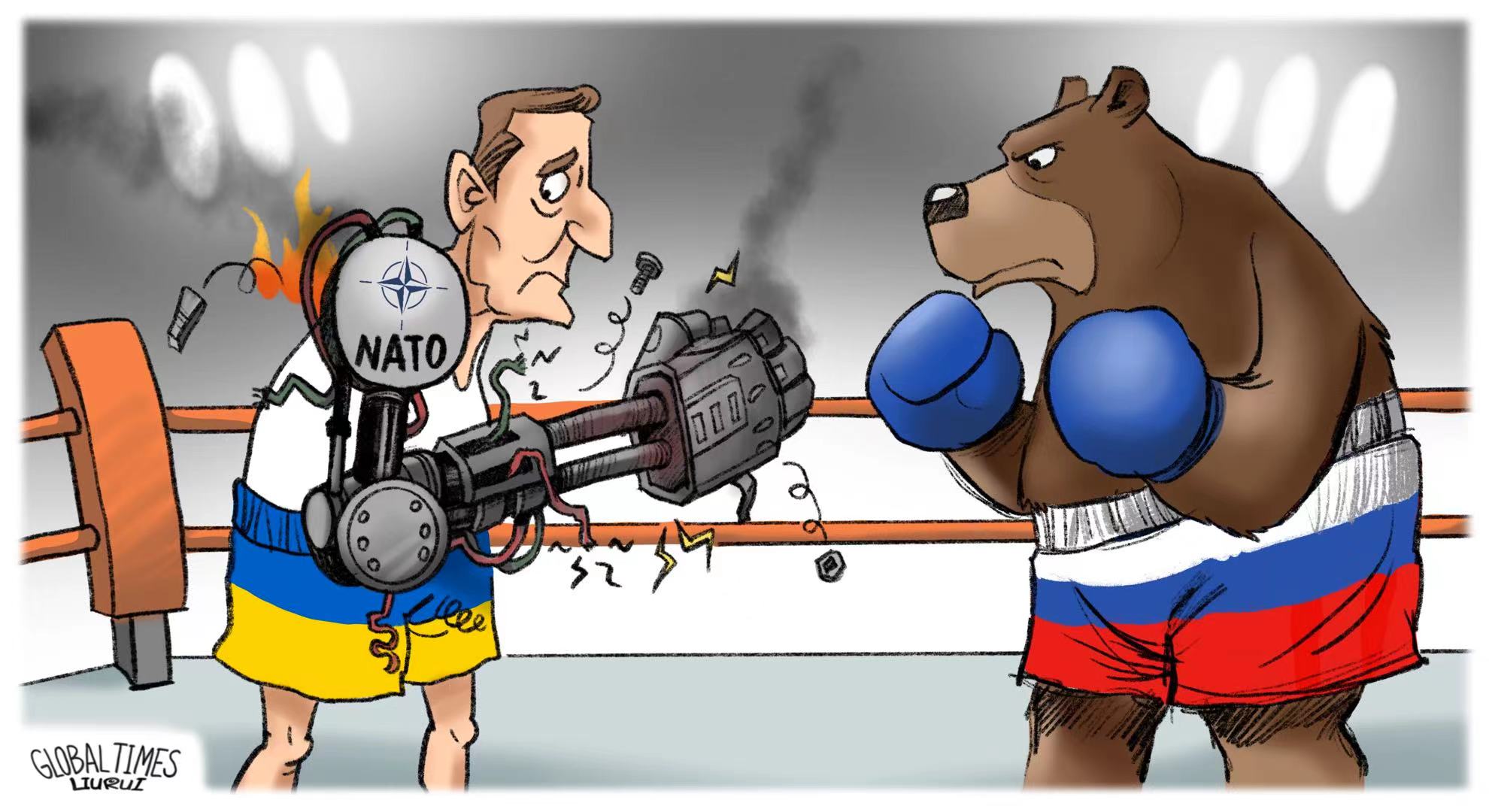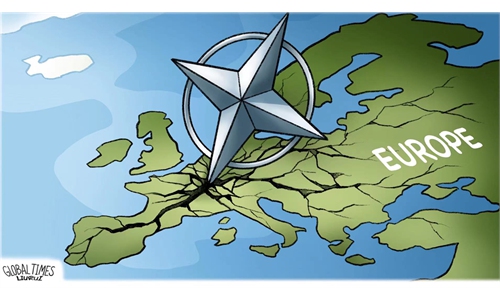
Illustration: Liu Rui/GT
The latest French legislative elections surprised most observers after the populist opposition shattered the ruling party's majority. This came in spite of incumbent President Emmanuel Macron being re-elected last month. Observers are now scrambling to interpret this development, especially in the context of the global systemic transition to multipolarity that accelerated after the start of Russia's special operation in Ukraine just three months a year earlier.
The latest tactical change at the parliamentary level could have consequences for the global systemic transition to multipolarity considering that major country's role within it. While it's unlikely that France will withdraw from NATO or restrict its participation in it like the populists want, there is no denying that their legislative victory was partially due to the change of popular perceptions toward the bloc.
This is not speculation either since both Jean-Luc Melenchon and Marine Le Pen are fiercely critical of NATO and want France to withdraw from it. Furthermore, an opinion poll that was recently published by the European Council on Foreign Relations also revealed that more Europeans favor peace over punishing Russia. Coupled with the rising costs on the average person caused by the crises that were exacerbated by the anti-Russian sanctions, it's clear why populism is rising there.
Foreign policy doesn't usually influence domestic policy, but the present stage of the global systemic transition to multipolarity and the consequences that France's existing policies have wrought for average people might mean that this issue becomes much more prominent in parliament in the future.
For instance, the populist opposition could demand that Macron do more to meaningfully broker peace between Russia and Ukraine even if this results in France defying its US-led NATO allies in exchange for their support on economic, political, and social legislation. The French leader would be thrown into a dilemma since he has an electoral self-interest in complying with their prospective demands.
France is a key player in European politics, which therefore makes it a globally relevant force to be reckoned with. Its new parliamentary shake-up could result in anti-NATO populists successfully pressuring the ruling party into operating outside of the bloc's approval with respect to Russia, which could in turn potentially increase the odds of a diplomatic breakthrough in the best-case scenario. It of course remains to be seen, but there's an insightful lesson to be learned from everything thus far.
The emerging pattern isn't just unique to France since it applies to all Western-style democracies according to Russian President Vladimir Putin while speaking at this month's Saint Petersburg International Economic Forum. The Russian leader assessed that the establishment's disconnection from the people "will inevitably lead to a surge in populism and extremist and radical movements, major socioeconomic changes, degradation and a change of elites in the short term."
The author is a Moscow-based American political analyst. opinion@globaltimes.com.cn

